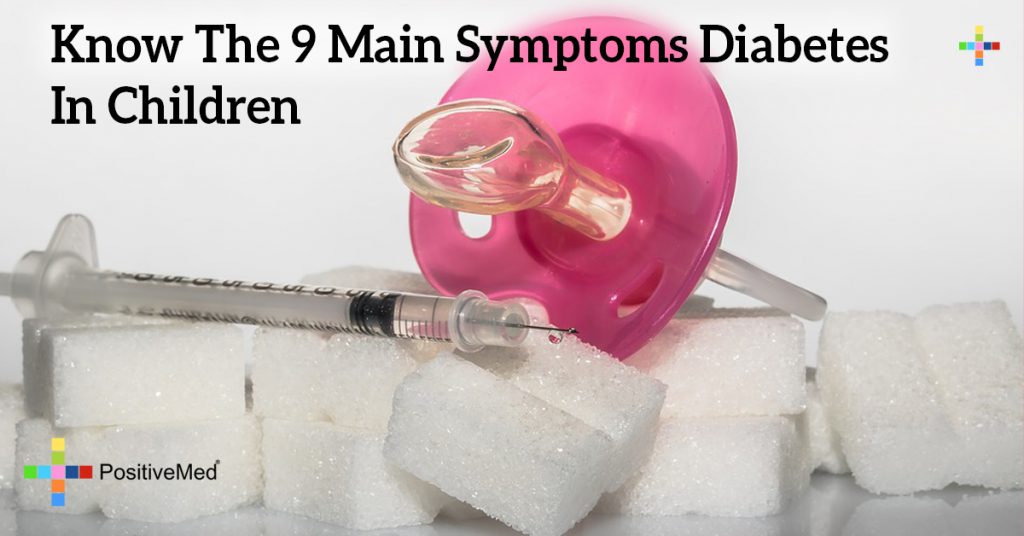
Know The 9 Main Symptoms Diabetes In Children
About 208,000 Americans under age 20 have diabetes. That number may be even higher because not everyone who has diabetes has been formally diagnosed. It’s important to recognize the signs and symptoms of diabetes in children, to ensure that you can quickly get the medical care your child needs to manage this condition if he or she has it.

Type 1 diabetes only makes up about 5% of people who have diabetes and occurs more commonly among White people and people under the age of 20. Type 1 diabetes is caused by genetic factors. Possible complications of untreated type 1 diabetes include vision damage, kidney damage, loss of limbs, and nerve damage.
Type 2 diabetes is also influenced somewhat by genetic factors. However, it is largely caused by being overweight or obese. Due to the steady rise of obesity among children in recent years, more and more children are getting type 2 diabetes, which doctors used to think children could not get. Those over the age of 45 and non-White people are more likely to get type 2 diabetes. Complications of type 2 diabetes left untreated include many of the same ones as type 1.
RELATED ARTICLE: All you Need to Know If Your Loved One Suffers From Diabetes
1. Frequent urination.
The excess sugar in the bloodstream caused by diabetes means that the body needs to flush out that excess sugar. This is done through urination. If your child needs to pee more often than usual or has started to wet the bed, it could be a sign of either of the types of diabetes. Sudden bedwetting is not necessarily a sign of diabetes; stress or trauma can also cause it, so rule that out before taking your child to the doctor.
2. Unusual thirst.
Diabetes causes excess sugar to build up in your child’s bloodstream, which indirectly causes dehydration. As a result, your child may be much thirstier than seems normal. This is a symptom of both types of diabetes.
3. Fatigue.
The cells of the organs and muscles of someone with diabetes don’t get enough sugar. This means a lack of energy for the person with diabetes. Fatigue is a symptom of both diabetes type 1 and 2.
4. Blurred vision.
Abnormally high blood sugar causes fluid to be pulled out of the lenses of the eye, leading to blurred vision. If your child develops blurred vision out of nowhere, it could be a sign of diabetes type 1 or 2.
5. Extreme hunger.
When the body’s cells don’t get enough sugar, the body will think it’s hungry, even if it’s not. If your child asks for more food than seems normal, it could be a sign of either of the types of diabetes.
6. Weight loss.
Even though a child with diabetes may be hungrier, he or she may still lose weight since the body is flushing out blood sugar through the urine instead of using it for energy. Unexplained weight loss could be a symptom of diabetes type 1 or 2. If your child is losing weight despite eating plenty of food, you should consult your doctor about the possibility of diabetes.
RELATED ARTICLE: Complications of Childhood Obesity
7. Nausea.
Unexplained nausea may be a sign of diabetes type 2. It’s important to rule out other possible causes, such as a stomach bug or food allergy. Even some supplements and medications can cause nausea as a side effect, so nausea on its own isn’t a strong sign of diabetes. However, if nausea co-occurs with any other symptoms listed here, diabetes may be a possible cause.
8. Compromised immune system.
If your child has frequent infections (such as colds, ear infections, wound infections, etc.), and his or her wounds seem to heal more slowly than is normal, this could be a sign of diabetes type 2.
9. Yeast infection.
If your daughter contracts a vaginal yeast infection, this is a possible sign of type 1 diabetes. Take your child to the doctor in the event of any yeast infection.
Diabetes can be a debilitating, even life-threatening illness if left untreated. If your child is experiencing more than one of the symptoms described here, you should talk to your child’s doctor. Your child deserves to be in good health, so keep a watchful eye on them.





